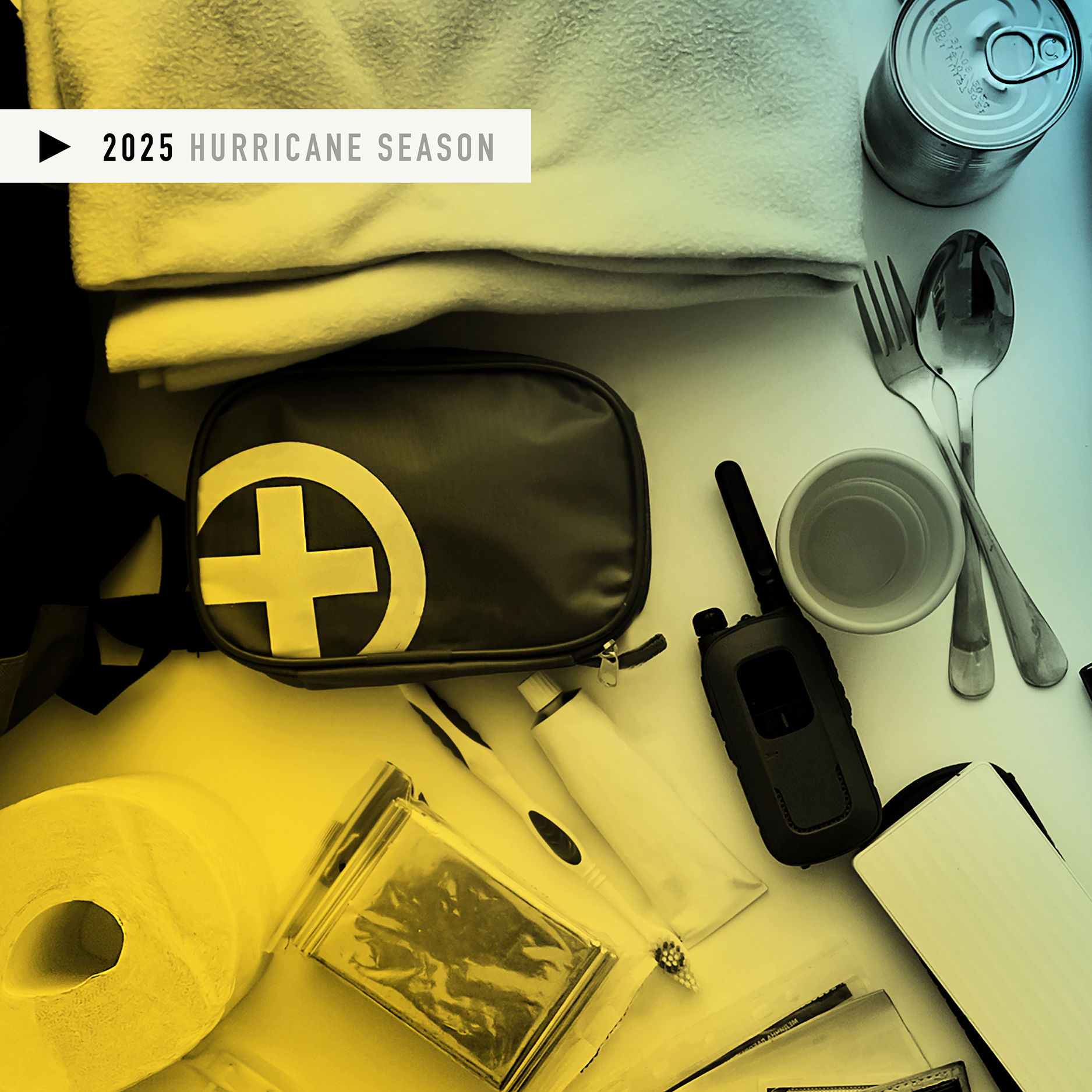10 Lesser-Known Hurricane Prep Tips

Yeah, yeah, we’re talking about hurricanes again. You all know the drill by now: stock up on water and canned goods, make sure you have some flashlights and a first aid kit, keep a set of batteries, and pray for the best. Before you roll your eyes and think you’ve heard it all, let’s be honest, that’s just hurricane prep 101. What you need now are the hurricane hacks that can turn you into a pro at handling bad weather, the ingenious tips that can save you (and your wallet) a major headache when the fury of Mother Nature comes rolling in. Here are a few lesser-known tricks to make sure you’re ready for whatever storm or hurricane is thrown our way.
Don’t drain your pool
Getting the water out of your pool could seem like a logical step before a hurricane, but it’s actually a recipe for disaster. The weight of the water helps hold your pool in the ground, preventing it from floating or cracking under powerful winds. Put a pool cover over it instead. This stops any fallen items or debris from getting inside and keeps the pool intact. Plus, it also means less cleanup after the hurricane, which is always a good thing.
Fill up the bathtub and freeze some water
A bathtub full of water will be a lifesaver when the taps run dry. This is great for flushing toilets or washing up after a hurricane. Additionally, dedicate some of your freezer space to frozen water. This way you’ll have a reserve of cold, drinkable water that thaws slowly and helps keep your fridge cold if the power goes out.
Use your vehicle as storage
Your car isn’t just for transportation during a hurricane—it can be a multi-purpose survival tool. Stock up your vehicle with extra blankets, clothes, and nonperishable foods and snacks, so if you need to evacuate quickly, you’ll have everything ready to go, ensuring a smoother and more organized departure. Remember to leave your car in the garage if possible.
Have a full tank of gas
This is a no-brainer for potential evacuations, but it can come in handy if you’re stuck at home. If your house has lost power and you need your car to charge devices or use for cooling, you’ll have plenty of fuel on hand to run the engine. A full tank also means you can siphon gas for use in generators or other essential equipment; just ensure you have the right tools (like a certified siphon hose) and are doing so safely.
Board up your windows…properly
Securing your windows is another essential step, but it’s often done incorrectly. When done right, this can save you from shattered glass or flying objects. It’s recommended to use plywood that is 5/8-inches thick and cut to the exact dimensions of your windows. Badly sized plywood can leave gaps that wind and debris can exploit. For an extra layer of protection, add weatherstripping around the edges for additional help sealing out wind and rain.
Clean out your gutters
Clogged gutters overflowing during a hurricane can cause major damage to your roof and foundation, which can cost you thousands to fix. Before a storm hits, take the time to clear out any debris, leaves, and dirt from your gutters. It’s a simple task that ensures rainwater can flow away from your home without obstacles, reducing the risk of leaks and water damage.
Make a digital safe
Back up all important information and documents online. This includes things like insurance policies, identification cards, birth certificates, and any other critical paperwork. Scan or take a picture of the documents and store them securely in an online database, so if your physical documents are lost or damaged during a hurricane, you can still access them digitally. It will also make it much easier to get replacements for the items afterward.
Get the right gear
Investing in some big items like a surge protector, a generator, a multi-fuel camping stove, and extra propane tanks can pay off during harsh weather. These items bring the muscle to your hurricane prep and can make life more comfortable during disruptions like power outages.
Have a plan
It sounds silly, but having a well-thought-out plan can make all the difference when the power goes out and communication is down. Have alternative ways to stay in touch with the outside world, such as nonelectric items like a battery-powered radio, whistles, or signaling devices. Agree on a meeting point with your loved ones in case you get separated, and have an out-of-town contact everyone can check in with. This way, even if cell service is down, you can know everyone is safe. If you have any pets, have a plan for them and an emergency kit with a ready supply of food, water, medications, their updated ID tags and microchip information, and a recent photo in case they get lost during the chaos.
Invest in flood insurance
Houston-area homeowners in the 100-year and 500-year floodplains are required to purchase a flood insurance policy. But even if you live outside these areas and don’t think you’ll need insurance, think again. Hurricanes are unpredictable and even a minor one can cause major damage. Homeowners and renters insurance typically don’t cover bad weather damage, so investing in specific flood or even windstorm insurance can save your pocket from financial woes later. The average flood insurance premium in Houston costs about $800 annually.











